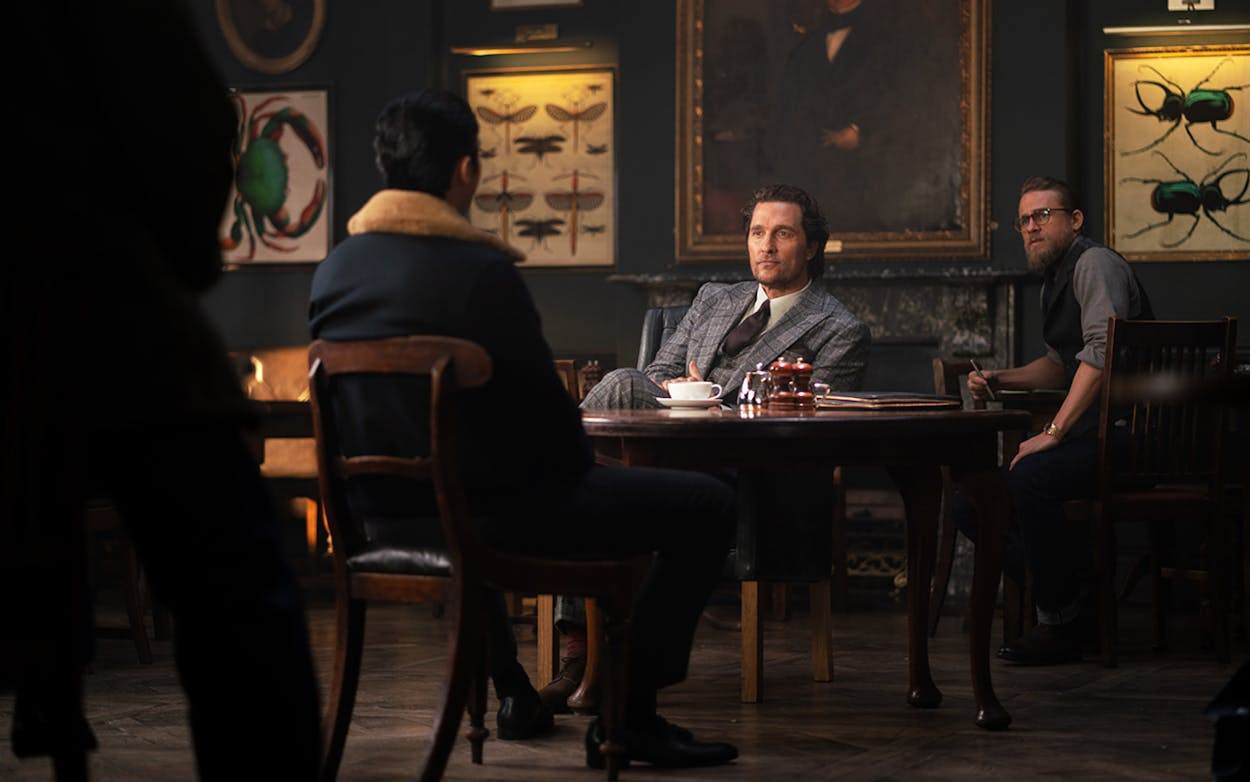Matthew McConaughey is one of the most maddening actors of his generation. He’s got all the talent in the world, and he spent the first two decades of his career squandering it in mostly unwatchable dreck—tacky action-adventures and instantly forgettable rom-coms. Around 2011, though, he began starring in movies that were actually good.
The McConaissance is well-documented: Between 2011 and 2014, McConaughey went on to star in a string of critically acclaimed roles with A-list directors like Steven Soderbergh and Martin Scorsese. He helped elevate films like Magic Mike into delightful blockbusters, brightened every moment he was on screen in The Wolf of Wall Street, lent an edge to Lee Daniels’s The Paperboy, and earned his first Oscar for Dallas Buyers Club. (He also teamed up with erstwhile Texan Woody Harrelson for the critically adored first season of HBO’s True Detective.)
Then, of course, he followed that up with a bunch of infamous car commercials. He starred in one prestige blockbuster from another A-list director—Christopher Nolan’s humorless 2014 epic Interstellar—and then, as suddenly as it had arrived, the McConaissance was over. He appeared in pretentiously unwatchable drivel like The Sea of Trees and Free State of Jones, in character-driven trash like Gold and White Boy Rick, in over-the-top crap like Serenity and The Beach Bum, and returned to the summer blockbuster in The Dark Tower—which Sony dumped into theaters and barely marketed, in the hopes that no one would see it (which mostly worked).
Post McConaissance, he’s had a handful of charming voice roles—a likable enough turn as a smooth-talking koala bear in the CGI-animated Sing, another as a samurai beetle in the stop-motion Kubo and the Two Strings. But fans have been left wondering: did this guy forget how to read a script before agreeing to be in a movie, or what?
His part in Guy Ritchie’s The Gentlemen doesn’t fully answer that question, but it is the kind of role we wouldn’t have been surprised to see McConaughey take during his golden era of 2011-2014. The film centers around McConaughey as the charming and vaguely menacing Mickey Pearson—an American who’s built himself a powerful marijuana business in the U.K, and who’s looking to sell so he can enjoy a peaceful retirement away from the stresses of business.
Much like in his Lincoln commercials, McConaughey spends a lot of time uttering nonsensical platitudes (this time about kings and lions) with utter conviction—sometimes as voice-over and sometimes as dialogue—in the way that only he can. In the film, McConaughey wears a lot of tweed suits and pulls off patterns that a less-confident man would look ridiculous in. The plot unfurls through unreliable narrators, flashbacks, and look-at-me stylistic quirks (in one memorable scene, a character disputes whether McConaughey’s character really did something shocking, and the film rewinds to play out another version of the scene). The Gentlemen is built around McConaughey—including what the viewer brings to his character based on the actor’s public persona—and he’s extremely watchable throughout.
That isn’t to say that The Gentlemen is a great movie. It’s mostly that director Guy Ritchie had a very strong vision for how to use Matthew McConaughey. Ritchie, who most recently directed Disney’s live-action Aladdin remake, came to prominence in the post-Tarantino nineties—a time when style, shock, and snappy dialogue were the hottest trends in cinema. Lock, Stock and Two Smoking Barrels in the late nineties made him into a household name, and 2000’s Snatch made him a hot commodity. He then spent the next two decades focusing on blockbusters of varying quality—including the Robert Downey Jr.-led Sherlock Holmes franchise, The Man From U.N.C.L.E., and King Arthur: Legend of the Sword.
By contrast, The Gentlemen marks Ritchie’s return to his crime thriller-comedy roots. If you’ve got much affection for his early films—or the entire tough-guy indie crime genre of the nineties and early aughts that he came out of—then you’ll find plenty to like in the movie, which feels like it almost came out of a time capsule. To wit: Ritchie tells the story primarily through a series of flashbacks unreliably narrated by a private investigator (Hugh Grant), who spins this tale as blackmail material to McConaughey’s right-hand man (played by Charlie Hunnam). It’s dated in the way that any director’s self-conscious attempt to make a “return to form” movie would be—even Guy Ritchie doesn’t make films like this anymore!—but it was clearly written around McConaughey as a screen presence. McConaughey obviously knows that, which lends his performance a gravity that there wasn’t much room for in Serenity. That’s why The Gentlemen feels like Good McConaughey, even though the movie itself is mostly Guy Ritchie talking to himself and the fans he earned two decades ago.
Even during the height of the McConaissance, he held some roles in uneven movies—Killer Joe and The Lincoln Lawyer certainly aren’t perfect—but they all felt purposeful and deliberate, like the actor took those parts because he wanted to genuinely make art. The Gentlemen feels like it comes from the same place. And even if the end result isn’t much more than a throwback genre exercise, it’s fun to watch Matthew McConaughey in a role that plays to his strengths again.
- More About:
- Film & TV
- Film
- Matthew McConaughey








